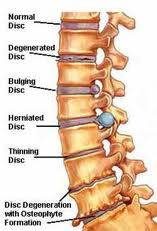Recent research found a “sweet spot” in the number of chiropractic treatments to correct chronic low back pain. A meticulous randomized trial to isolate the effects of “spinal manipulative therapy” found that patients who received twelve chiropractic treatments within a six-week period fared better than those who saw the chiropractor only six times, and even those who were treated eighteen times. This is the first study of its kind that attempts to find the optimum dose-response of chiropractic adjustments for a given condition and provides a scientific basis for the prescription of chiropractic care.
Chiropractic vs Medical Care
Get a Chiropractic Adjustment or swallow a muscle relaxer and pain pill, which is more effective?
Here are the results of one recent study:
“Patients with chronic low-back pain treated by chiropractors showed greater improvement and satisfaction at one month than patients treated by family physicians. Satisfaction scores were higher for chiropractic patients. A higher proportion of chiropractic patients (56 percent vs. 13 percent) reported that their low-back pain was better or much better, whereas nearly one-third of medical patients reported their low-back pain was worse or much worse.”
– Nyiendo et al (2000), Journal of Manipulative and Physiological Therapeutics
BMI is not TMI
 Measurement of your weight alone does not provide enough information to accurately assess your level of health. The Body Mass Index (BMI) is an easy calculation you can make to better determine your level of fitness and to screen for excess or insufficient body fat. The calculation provides an index of height to weight that allows for a comparison of many body types. Calculate BMI by dividing weight in pounds (lbs.) by height in inches (in) squared and multiplying by a conversion factor of 703. Formula: weight (lb.) / [height (in)]2 x 703. This calculation will yield a number that can be matched on a scale of relative percentages of body fat to help determine your risk for disease. The scale is as follows: BMI below 18.5 = Underweight; BMI 18.5 – 24.9 = Within Normal Limits; BMI 25.0 – 29.9 = Overweight; BMI 30.0 and above = Obese.
Measurement of your weight alone does not provide enough information to accurately assess your level of health. The Body Mass Index (BMI) is an easy calculation you can make to better determine your level of fitness and to screen for excess or insufficient body fat. The calculation provides an index of height to weight that allows for a comparison of many body types. Calculate BMI by dividing weight in pounds (lbs.) by height in inches (in) squared and multiplying by a conversion factor of 703. Formula: weight (lb.) / [height (in)]2 x 703. This calculation will yield a number that can be matched on a scale of relative percentages of body fat to help determine your risk for disease. The scale is as follows: BMI below 18.5 = Underweight; BMI 18.5 – 24.9 = Within Normal Limits; BMI 25.0 – 29.9 = Overweight; BMI 30.0 and above = Obese.
Real Prevention
Just as a tooth does not develop a cavity overnight, your spine also imperceptibly degenerates over time. And just as regular dental check-ups prevent tooth decay, Chiropractic adjustments prevent spinal decay. So, it is important to receive regular preventative adjustments throughout the year, even if you don’t feel any pain. We make it easy, you can book an appointment on-line anytime!
Edison’s View on Healthcare
The Father of Medicine on Chiropractic
The New You
Wholesomeness
Vitamins and Supplements

Don’t forget to check out our Nutritional Supplements page under Services, so you may place orders for vitamins and supplements directly from our professional suppliers.






